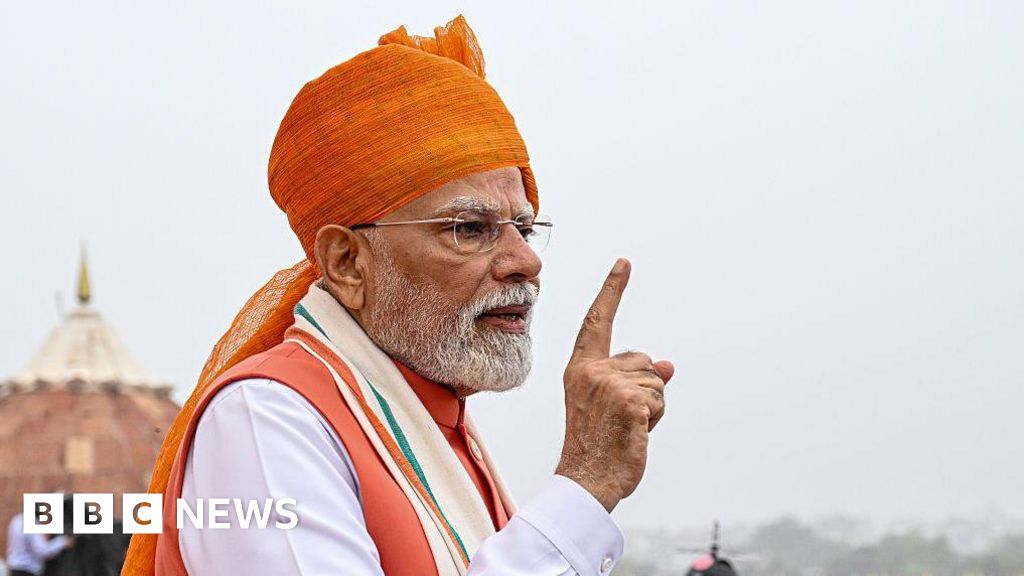The Clash Between President Donald Trump's Trade and Immigration Agendas

Introduction
The clash between President Donald Trump's trade and immigration agendas was on full display Thursday when federal authorities carried out an immigration raid at a Georgia construction site for a Hyundai electric vehicle battery plant. This move comes as a result of the administration's intensified efforts to crack down on illegal immigration and enforce stricter policies. However, the timing of the raid is significant as it coincides with the ongoing trade tensions between the US and South Korea, where Hyundai is headquartered.
Key Details
The raid has led to the arrest of several individuals suspected of being in the country illegally and working on the construction site. This has raised concerns about the impact on the completion of the plant, which is expected to create thousands of jobs and boost the local economy. Additionally, the raid highlights the complex relationship between the two countries, as South Korea is one of the top US trading partners. The tensions have escalated in recent months, with Trump imposing tariffs on steel and aluminum imports from South Korea.
Impact
The clash between Trump's trade and immigration agendas has caused confusion and uncertainty for businesses and employees alike. With the administration's push for stricter immigration policies, companies are facing the risk of losing their workforce and facing potential fines. Moreover, the tensions between the US and South Korea have the potential to disrupt not only trade but also partnerships and investments between the two countries. It remains to be seen how this
About the People Mentioned
Donald Trump
Donald John Trump, born June 14, 1946, in Queens, New York, is an American businessman, media personality, and politician. He graduated from the University of Pennsylvania’s Wharton School in 1968 with a degree in economics. In 1971, he took over his family’s real estate business, renaming it the Trump Organization, through which he expanded into building and managing skyscrapers, hotels, casinos, and golf courses. Trump gained widespread fame as the host of the reality TV show *The Apprentice* from 2004 to 2015, which helped establish his public persona as a successful entrepreneur. Trump entered politics as a Republican and was elected the 45th president of the United States, serving from 2017 to 2021. His presidency was marked by significant policy actions including tax cuts, deregulation, the appointment of three Supreme Court justices, renegotiation of trade agreements (notably replacing NAFTA with the USMCA), and a focus on immigration control including border wall expansion. He withdrew the U.S. from international agreements such as the Paris Climate Accord and the Iran nuclear deal, and engaged in a trade war with China. His administration’s response to the COVID-19 pandemic was criticized for downplaying the virus’s severity. Trump was impeached twice by the House of Representatives—first in 2019 for abuse of power and obstruction, and again in 2021 for incitement of insurrection—but was acquitted by the Senate both times. After losing the 2020 election to Joe Biden, Trump challenged the results, culminating in the January 6, 2021, Capitol riot. He remains a central figure in American politics, having won the 2024 presidential election and returned as the 47th president in 2025, continuing to promote policies aimed at economic growth, border security, and military strength[1][2][3][4].
About the Organizations Mentioned
Hyundai
Hyundai Motor Company, founded in 1967 and headquartered in Seoul, South Korea, is a leading global automotive manufacturer known for its broad portfolio of vehicles and technological innovation[5]. It operates the world’s second-largest automobile manufacturing plant in Ulsan, South Korea, with an annual capacity of 1.6 million units, and sells vehicles in 193 countries through 5,000 dealerships[5]. Hyundai is part of the Hyundai Motor Group, which also owns Kia Corporation and the luxury brand Genesis. Hyundai has established itself as a major player in the global auto market, ranking as the third largest carmaker worldwide by production as of late 2024[5]. The company is aggressively expanding its electric vehicle (EV) lineup, including models like the Ioniq 6 and the upcoming Ioniq 7, alongside region-specific EVs such as the IONIQ 3 for Europe, India's first locally designed EV, and China-produced Elexio and electric sedans[1][3][5]. It plans to achieve global vehicle sales of 5.55 million units by 2030, with electrified vehicles (hybrids and EVs) accounting for 3.3 million units, reflecting a strong commitment to electrification and sustainability[1][2]. Hyundai’s innovation extends beyond vehicles into software and AI, advancing its Software-Defined Vehicle platform with AI-driven features and over-the-air updates, exemplified by technologies like Pleos Connect and AI assistants Atria, Gleo, and Capora[1]. The company is also investing heavily in next-generation battery technology, extended-range EVs launching from 2027, and manufacturing expansions aimed at increasing production capacity and efficiency globally[2]. Sustainability is a core focus, with Hyundai aiming for carbon neutrality by 2045, implementing circular economy initiatives such as recycling materials from end-of-life vehicles, and investing in renewable energy[4]. Financially, Hyundai has shown strong growth
US
The query seems to be about providing a summary of the organization "US," which could be interpreted as the United States government or a specific entity within it. However, without a clear reference to an "organization" named "US," I will provide a comprehensive overview of the United States government, focusing on its structure, history, achievements, current status, and notable aspects relevant to business and technology. ## Overview of the United States Government The United States government is a federal republic with a system divided into three branches: the legislative, executive, and judicial. This structure is designed to provide checks and balances on each branch. ## History The U.S. government was established in 1789 under the Constitution, which outlines the framework of the federal system. Over time, the government has evolved through numerous amendments and reforms, shaping policies and laws that impact various sectors, including business and technology. ## Key Achievements - **Economic Growth**: The U.S. has been a global leader in economic growth, innovation, and technological advancements, fostering a strong business environment. - **Technological Advancements**: The government has supported significant technological developments, such as the internet and space exploration, through funding and regulatory frameworks. - **Regulatory Frameworks**: Agencies like the Federal Trade Commission (FTC) and the Federal Communications Commission (FCC) play crucial roles in regulating industries and ensuring consumer protection. ## Current Status Currently, the U.S. government is engaged in various initiatives to address contemporary challenges such as climate change, cybersecurity, and healthcare reform. The government also continues to evolve its organizational structure, with ongoing discussions about the role of the executive branch, as seen in initiatives like Project 2025. ## Notable Aspects - **Project 2025**: This initiative, backed by the Heritage Foundation, aims to restructure the federal government to align with conservative ideals, potentially impacting civil rights and executive branch powers. - **Standards and Regulations**: The U.S. Standards Strategy,
South Korea
South Korea, officially the Republic of Korea, is a highly advanced and dynamic country located on the southern part of the Korean Peninsula in East Asia. It has transformed from a low-income nation into a global high-income economy known for its technological innovation and export-led growth. As of 2025, South Korea’s GDP reached approximately US$1.9 trillion, supported by robust exports totaling around US$684 billion, making it a major player in global trade, particularly in advanced memory chips and electronics[1][9]. Founded in 1948 under a constitution establishing a strong presidential system, South Korea today boasts a population of about 51.7 million, with Seoul as its vibrant capital city. It maintains a high standard of living, with a median age of 41.8 years and life expectancy of 82.5 years, supported by well-developed healthcare infrastructure[2]. The country’s political landscape is stable but has faced challenges, including a recent impeachment and martial law events in 2024–2025, reflecting ongoing tensions with North Korea and complex domestic politics[5]. South Korea’s economy is projected to grow modestly, around 0.8–1% in 2025, with government stimulus measures focusing on artificial intelligence and technology investments to counteract weak domestic demand and external risks such as US tariffs and slowing demand from China[1][3]. Its strategic diplomacy involves balancing relations with the US, Japan, China, and Russia amid shifting geopolitical dynamics in East Asia[4]. Technologically, South Korea is a global leader in digital government services, scoring significantly above the OECD average on the Digital Government Index (0.93 vs. 0.61), emphasizing data-driven governance and digital innovation[6]. Its business environment is attractive to foreign investors due to political stability, skilled labor, and world-class infrastructure[8]. Despite these strengths, South Korea faces ongoing social challenges, including discrimination against minorities and concerns over press freedom[5][7]. In summary


















